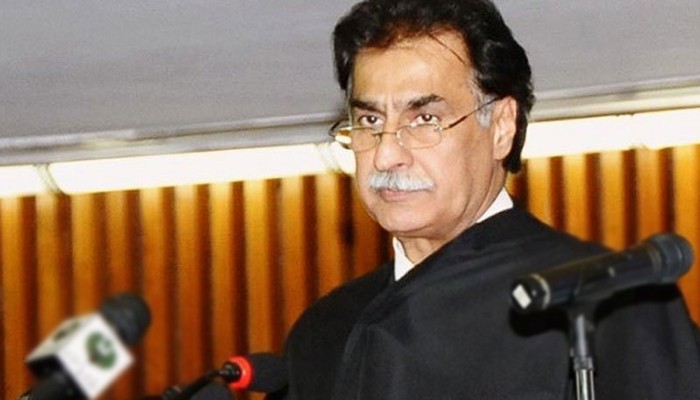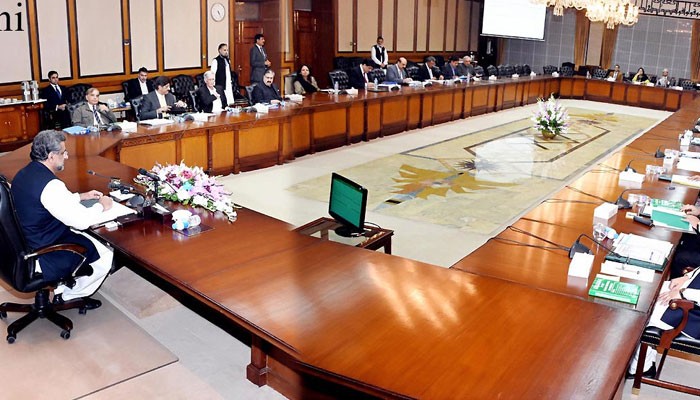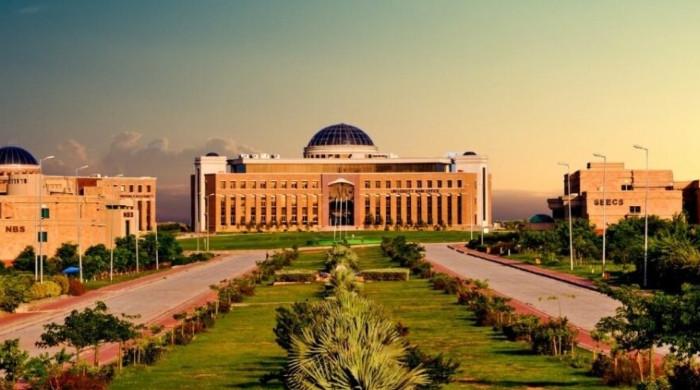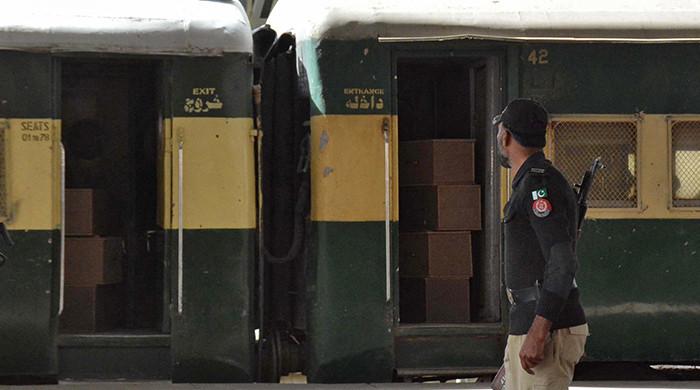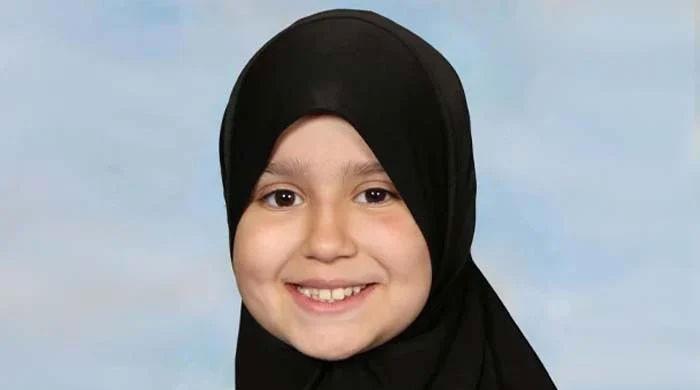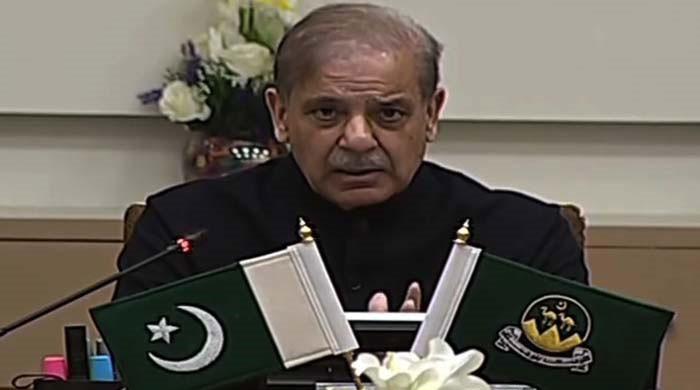Khatam-e-Nabuwat clause restored to previous form after NA passes amended election bill
Prior to the National Assembly session, a meeting of the parliamentary leaders was held
November 16, 2017
ISLAMABAD: The National Assembly passed the Elections Amendment Bill 2017, which pertains to restoring the Khatam-e-Nabuwat [finality of Prophethood] clause to its original form, on Thursday.
The bill seeks to incorporate and reaffirm the provisions of Articles 7-B and 7-C of the Conduct of General Elections Order, 2002, through the addition of a new section 48-A in the Election Act, 2017.
According to the bill, “the status of Qadiani Group or the Lahori Group (who call themselves 'Ahmadis' ,or by any other name) or a person who does not believe in the absolute and unqualified finality of the Prophethood of Muhammad (peace be upon him)….. shall remain the same as provided in the Constitution of the Islamic Republic of Pakistan.”
Moreover, “if a person has got himself enrolled as voter and objection is filed before the Revising Authority notified under this Act that such a voter is not a Muslim: the Revising Authority shall issue a notice to him to appear before it within fifteen days and require him to sign a declaration reproduced below regarding his belief about the absolute and unqualified finality of the Prophethood.”
The clause further states that: “In case he [the person] refuses to sign the declaration as aforesaid, he shall be deemed to be a non-Muslim and his name shall be deleted from the joint electoral rolls and added to a supplementary list of voters in the same electoral area as non-Muslim. In case the voter does not turn up in spite of service of notice, an ex-parte order may be passed against him.”
Prime Minister Shahid Khaqan Abbasi also attended the assembly session on Thursday.
NA passes Constitution (Amendment) Act, 2017
Moreover, the constitutional amendment bill on delimitation was also passed with 242 parliamentary members voting in its favour.
Both the bills were presented before the assembly by Law Minister Zahid Hamid. The bills will now be sent to the Senate for approval.
Awami Raj Party MNA Jamshed Dasti had opposed the delimitation bill in the assembly and raised objections regarding the bill’s objectives and purposes.
After the bill was passed with a majority, Dasti said that he will approach the Supreme Court against the bill. Moreover, Pakistan Tehreek-e-Insaf’s Arif Alvi withdrew his proposed amendment in two sections of the bill.
Prior to the National Assembly session, a meeting of the parliamentary leaders was held, which was chaired by NA Speaker Ayaz Sadiq. The meeting decided that all the parties are in unison over the delimitation bill.
However, Muttahida Qaumi Movement-Pakistan had shared some reservations regarding the bill. Railways Minister Khawaja Saad Rafique suggested that to resolve their reservations, another session of Council of Common Interests (CCI) can be summoned.
During the meeting, MQM-Pakistan Chief Farooq Sattar reiterated his demand for the census to be held again. He said that the “census should be held again in at least 10 blocks in Karachi.”
The meeting participants had also decided to restore the finality of Prophethood clause to its original form in the Elections Act 2017.
On Wednesday, a similar meeting was postponed as the parties failed to reach a consensus over the finality of Prophethood clause.
Moreover, no member of Pakistan Peoples Party had appeared for the meeting of parliamentary leaders. However, Ayaz Sadiq had called Opposition Leader Khursheed Shah during the session.
"All demands of Khursheed Shah have been met," Ayaz said while speaking to media.
All parties agree on draft bill for delimitation: Ayaz Sadiq
On November 1, Ayaz Sadiq had shared that the draft bill for the delimitation of constituencies has been agreed upon by all the parliamentary parties.
Addressing the media after a meeting of political parties, Sadiq said all parties are united with regards to the bill and will vote for in the NA when it is tabled.
According to the new delimitation, Punjab's seat share will decrease by nine seats, while Islamabad will get one more seat, KPK will get five and Balochistan will be given three more.
NA seats for FATA and Sindh will remain unchanged.
In response to a question, Sadiq said a total of 780,000 people will be represented on one NA seat after the readjustment.
On November 31, after chairing a similar meeting, Sadiq had informed the media that the total NA seats will remain 272 but there would be a change in the allocation of NA seats for the provinces.
“The number of seats for Punjab will decrease, KP and Balochistan will see an increase, while an additional seat would be allocated for Islamabad.”
It was decided at the meeting that nine NA seats from Punjab, out of which seven are general and two are reserved for women, will be decreased. However, Khyber Pakhtunkhwa will witness an increase of five seats, of which four will be general seats and one reserved for women candidates.
Balochistan will see an increase of three national assembly seats, two general and one for women. Sindh and Fata will not see any changes in the number of seats, while Islamabad Capital Territory would have an increase of one seat in the NA.
CCI approves delimitation on provisional census results
On November 13, the Council of Common Interests (CCI) approved delimitation of new constituencies on the basis of provisional results of Population Census 2017, paving a way for timely conduct of next general elections.
The 33rd meeting of the CCI was attended by chief ministers of Punjab, Sindh, Khyber Pakhtunkhwa and Balochistan, who resolved to hold elections on time.
Prime Minister Shahid Khaqan Abbasi chaired the meeting, with federal ministers for inter-provincial coordination, industries and production, and finance also in presence.
The meeting approved usage of provisional census results for delimitation process.
Briefing the media, PM's special aide Musaddiq Malik said the political leadership resolved a major constitutional crisis through wisdom. "The election commission will immediately start working on the delimitation of new constituencies following a constitutional amendment," he said.
*An earlier version of the story erroneously had reported the passing of the delimitation bill at an earlier time. The error is regretted.

